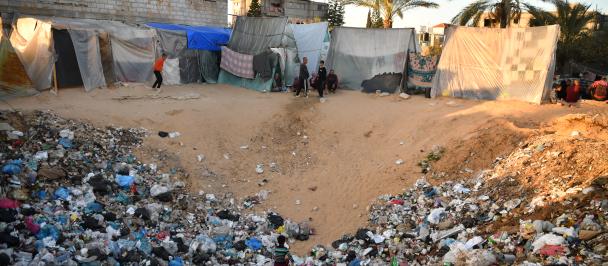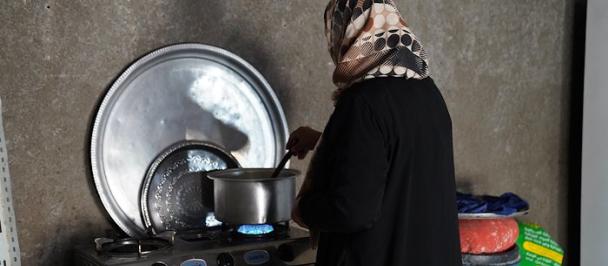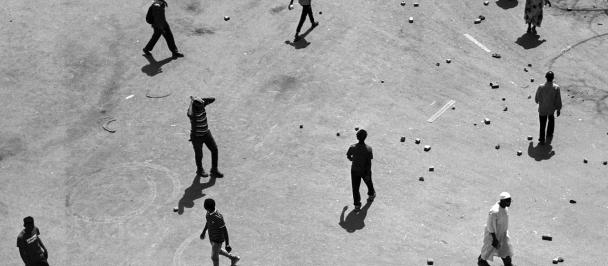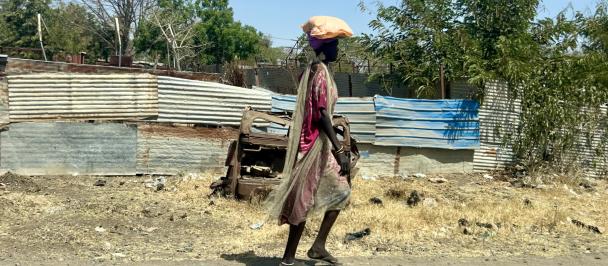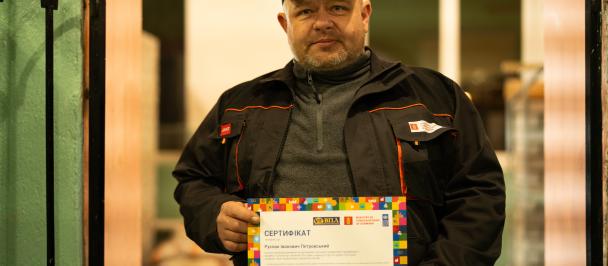A conversation with UNDP Resident Representative Nicole Kouassi
Meeting evolving and escalating needs in Niger
September 14, 2023
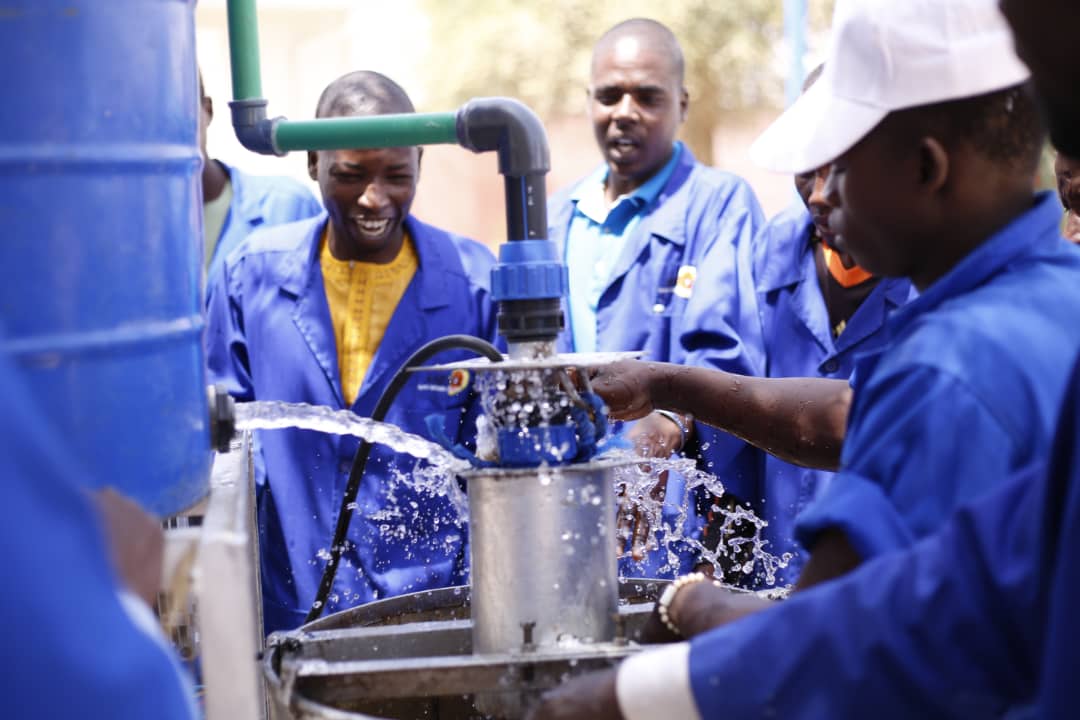
A pilot project testing a remote solar irrigation device in Tahoua and Agadez. It allows farmers to irrigate their gardens remotely, and for free, via their mobile phones.
In Niger, since the unconstitutional change of government in July, UNDP has been calling for a peaceful resolution of the current situation in the country, where over 41 percent of the population lives in poverty and requires urgent development assistance. We spoke with UNDP Resident Representative Nicole Kouassi about the situation on the ground and the support UNDP is providing.
What are the needs in Niger right now?
Niger is facing not only a humanitarian crisis, but also a development crisis. It’s important to remember, the country was confronted with deep development challenges even before the coup. Niger has faced huge climate issues, it has faced security and terrorism issues and levels of education and unemployment have been of concern for many years. The current instability and rise in tensions, coupled with the closing of borders and climbing inflation, means we are at risk of regressing. And if we don’t tackle the development needs we are seeing, in particular employment, basic social services, prevention of radicalisation and the fight against violent extremism, the humanitarian crisis will grow exponentially. We have to prioritize these things if we want to help the local population during this crisis.
Are you currently able to reach communities in need of assistance?
UNDP is a trusted partner at the community level; we have been here for over 45 years, and we work in some of the hardest areas to reach, conflict affected communities. We have been able to continue to provide support in Dosso, Maradi, Zinder, Diffa, Tillaberi, Tahoua, and Niamey.
The fact that nearly 80% of our team are local staff means we are well placed to reach out to communities and local decision makers and we work closely with community-based organizations. Our support currently reaches approximately one million people per year, with support to basic services such as water, health and education, while also focusing on energy, livelihoods, conflict prevention and peace consolidation.
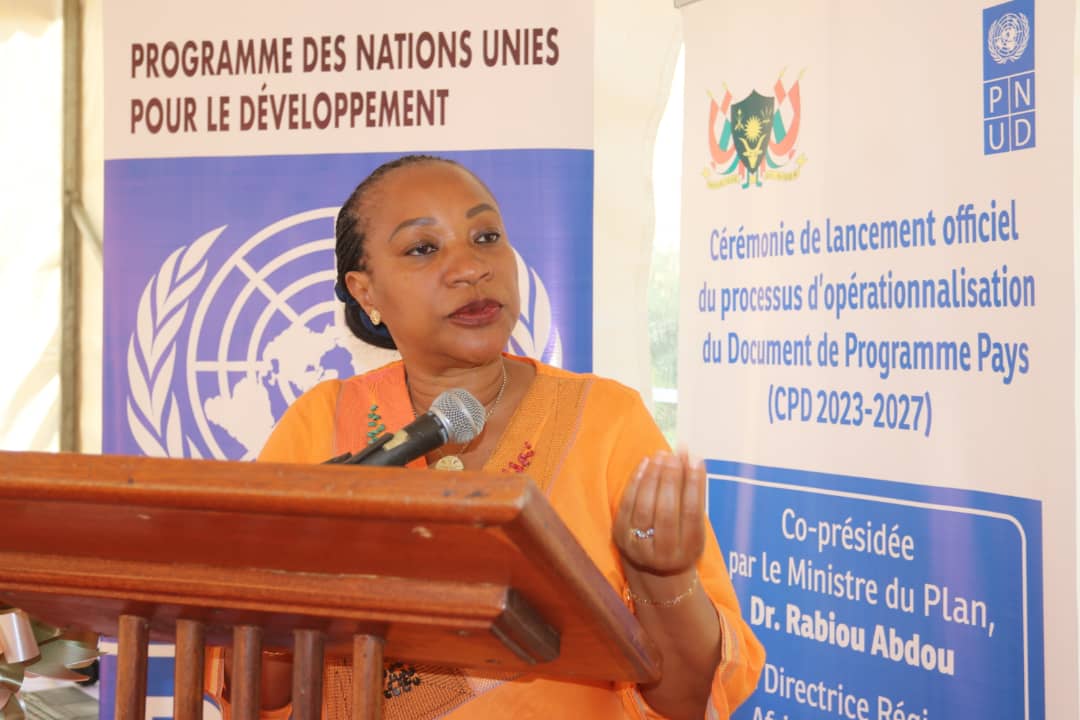
Resident Representative Nicole Kouassi heads UNDP's mission to support the people of Niger to create sustainable livelihood opportunities and receive basic services..
What has been the impact of the recent crisis on UNDP programmes?
Because our programmes have been happening for so many years, there is strong local ownership. The infrastructure we have put in place, whether it is water or schools or health centres, these are things that are part of communities.
We also work with community-based organizations throughout Niger. There is nothing preventing us today from providing stabilization and development assistance, as long as we continue to have the support of Niger’s financial partners.
We are also looking into how we can adapt some of our activities to meet the evolving--and escalating--needs. What we are now putting together, to reinforce our existing livelihoods programme, are activities which would help ensure more young people have income-generating activities. This will include a focus on how we increase availability of produce in local markets, to help address the shortages created from border closures and inflation.
"UNDP has built schools, markets and also focused on health centres and ensuring street lights through solar panels. In areas affected by insecurity, in the region of Diffa and Tillaberi, UNDP has supported over 40 percent of internally displaced persons to return to their secure and rebuilt villages."UNDP Niger Resident Representative Nicole Kouassi
What is the focus of UNDP programmes?
Our support is built around three key areas. First is democratic institution building and, over the last few years, the country has been able to develop a strong Social and Economic Development Plan. With donor support, energy coverage has increased fourfold at the national level, salaries of staff delivering key public services have been paid on time and allocations of funding to social services such as education and health have all increased. It is vital that these development gains are protected.
Secondly we are focused on helping communities to build resilience, primarily through support to secure a sustainable income. In recent years we have supported approximately 400,000 people through our livelihoods programme. UNDP has worked in communities to install solar irrigation systems and has also provided seeds, and we particularly target this support to women and young people.
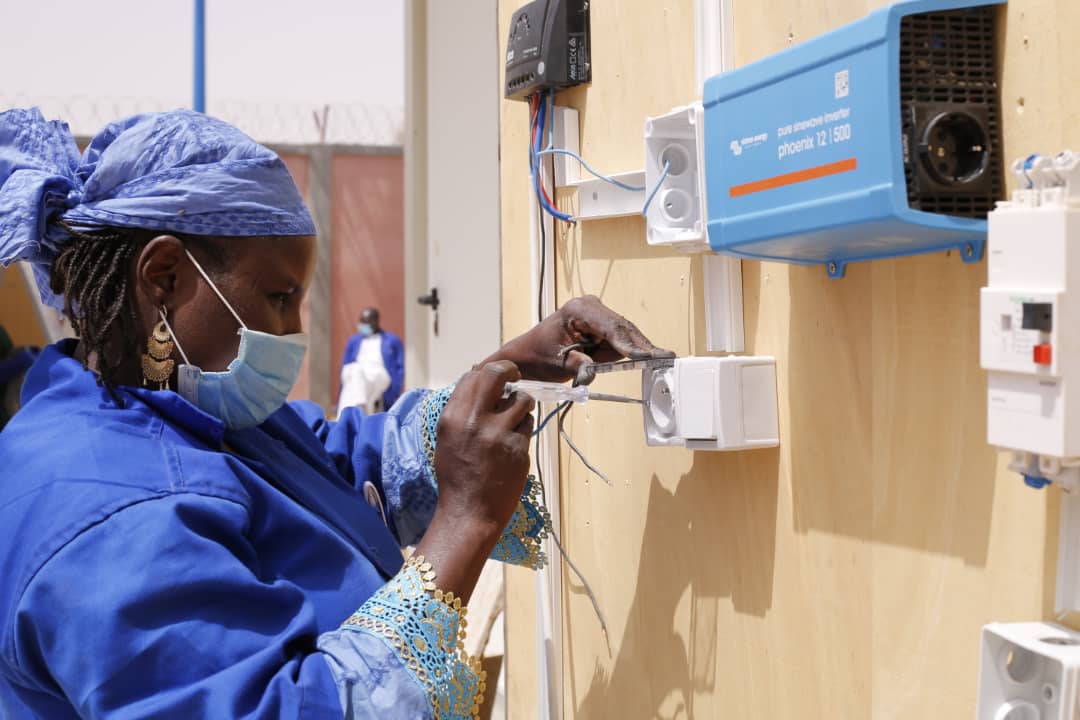
UNDP Niger fosters youth empowerment and green economic transition through skills training, particularly for women.
We have also supported communities in the Region of Diffa, around the fertile areas of Lake Chad, to generate, two years in a row, more than a million dollars in revenues trading bell peppers and fishery products. This was not possible before 2021 when the production of bell peppers and fisheries activities were not allowed due to the insecurity in and around the Lake Chad and the Komadougou River.
Finally we also work on peace, stabilization, and security, particularly focusing on communities vulnerable to violent extremism, terrorism and local conflicts. Many people fled their communities and UNDP has been working in those villages, to help make communities safe so they can return and get back to their normal lives. From a development perspective, this has meant creating the infrastructure communities need. UNDP has built schools, markets and also focused on health centres and ensuring street lights through solar panels. In areas affected by insecurity, in the region of Diffa and Tillaberi, UNDP has supported over 40 percent of internally displaced persons to return to their secure and rebuilt villages.
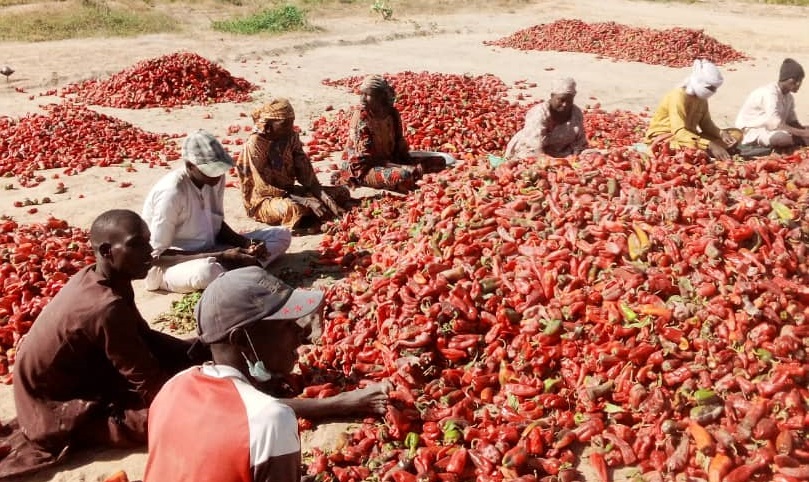
UNDP Niger supports communities in the Diffa region, around the fertile areas of Lake Chad, to generate revenue trading bell peppers and fishery products.
How long will UNDP be supporting communities in Niger?
What we do is so important to the population. When I ask myself how we build hope for the future, my response comes back to the work we do. People aspire to a better life, for them, for their children and their community. They want to be able to generate sustainable income. They want to live in safe communities with guaranteed access to basic social services; people need access to clean water and energy. All of this is what build a sense of security.
Investing in development, through programmes that focus on livelihoods and access to basic services such as education, healthcare, water, and energy, this is what people want and need and this is how we can help sustain peace.

 Locations
Locations